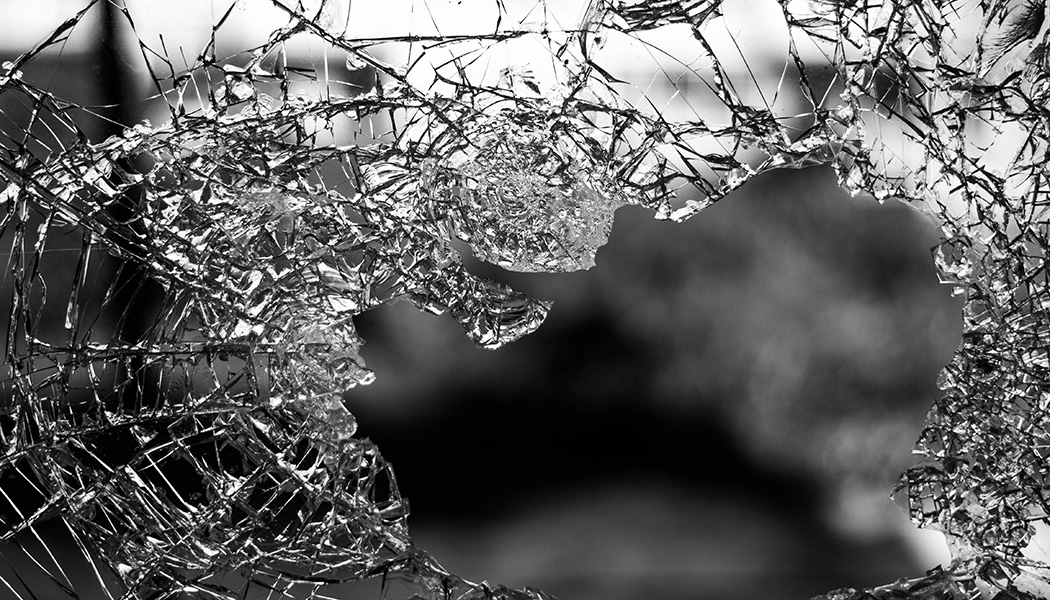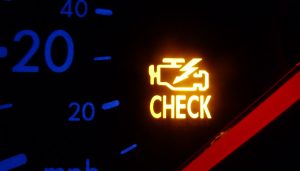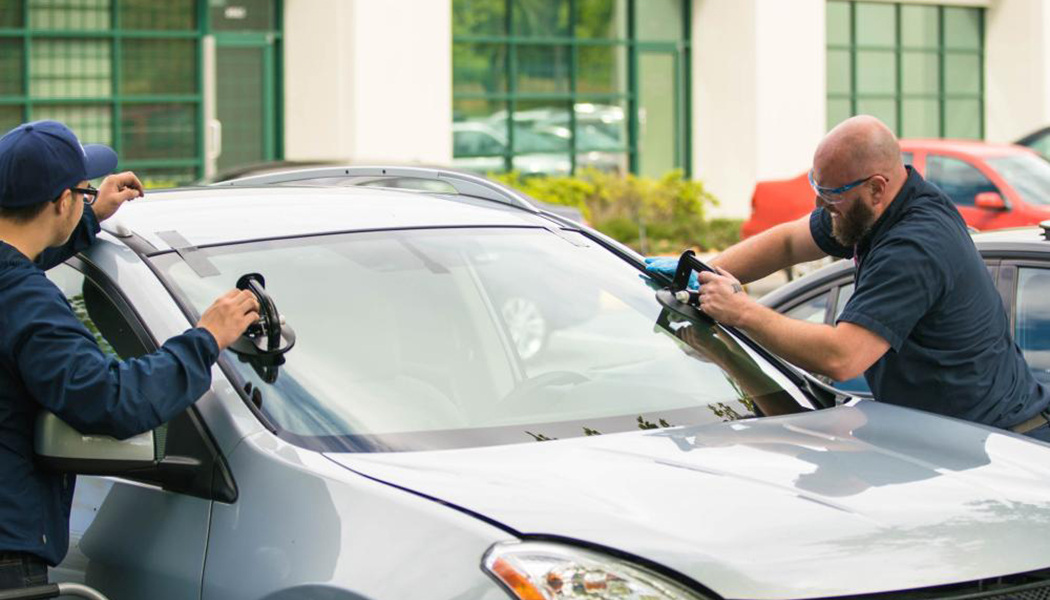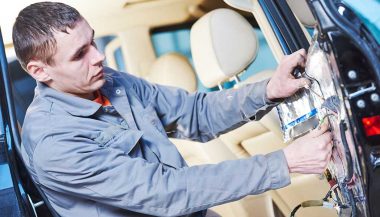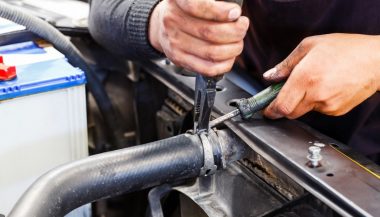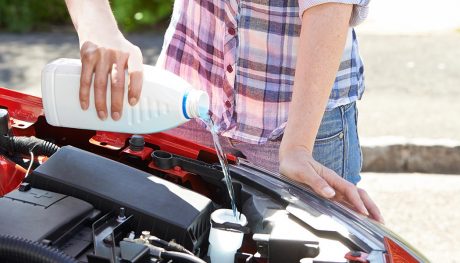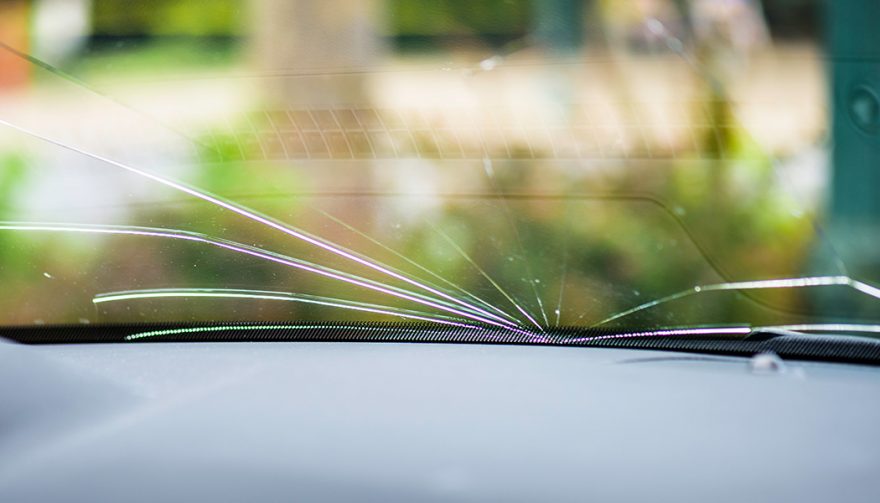
Every driver has heard the crack of rock hitting glass. Once you've spotted the damage there's just one question. Should You Fix or Replace Your Windshield?
Crack, Chip, or Pit: Should You Fix or Replace Your Windshield?
Cruising down the highway, a cringeworthy “CRACK!” sounds off. Every seasoned driver has heard it and there’s one logical reaction: check for a chip or crack in the windshield. More often than not, there’s no noticeable damage from an impact on the windshield – even though it’s made of glass, it seems to hold up like steel. But every so often, luck runs out and there’s a chip or crack left as evidence of an impact. Whether from a stone or a stress fracture, road debris or a vandal with a vendetta, chips and cracks in your windshield need to be addressed. How do you decide if should you fix or replace your windshield?
The ROLAGS Standard
No, I didn’t just curse. ROLAGS is a repair standard for auto glass. It’s an acronym: Repair Of Laminated Auto Glass Standard. It’s an industry standard for North America set out by the National Windshield Repair Association, detailing when a windshield should be fixed and the proper procedure, or when it should be replaced.
Why Fix the Windshield?
Look, I question authority too. So naturally, the question of ‘WHY’ is always a big one. Forget should you fix or replace your windshield, why fix a chipped or cracked windshield at all?
For chips, the answer is very simple. You don’t want a chip to become a crack. Easy as that.
For cracks, there’s a different answer – a better one. Believe it or not, a cracked windshield can affect your car’s safe operation. First, it can impair the driver’s vision if it’s in the field of view. And whether it’s in the field of view or not, a cracked windshield affects the car’s structural integrity. No joke.
Think of a rollover. The windshield is designed to help hold the car roof up in a rollover accident. Honestly, I’m not making this up. A cracked windshield has compromised strength and might not support that violent impact. It’s not sitting on the roof, it’s the initial thump that can cause the roof to buckle.
On the inside, airbag deployment can be affected by a cracked windshield. When the airbags blow, the windshield guides their force forward toward the occupants for protection. If the windshield is cracked, the windshield could explode outward first, deflecting the airbags off their intended path. Think about that when debating whether should you fix or replace your windshield
Trust the Experts at Safelite AutoGlass
When getting your windshield replaced, you want to avoid any potential scams. Some of these include:
- Freebie offers: To make it seem like less of a scam, some places will offer freebies like car washes to entice you.
- Replacing an undamaged windshield: There are some shops out there that will replace an undamaged windshield when it could easily have been a repair.
- Shops that are sneaky: You have to understand everything that you’re signing. Some places could sue your insurance company in your name creating much worse problems for you.
Put your windshield replacement behind a trustworthy company and get a quote today at Safelite AutoGlass.
Windshield Damage: To Repair or Replace?
Stone Chips
Technically, there are different names for the types of chips in a windshield. Bullseye, half moon, star break – they’re all types of windshield chips, and each type has a specified repair limit.
A bullseye has a separated cone-shaped crater in the glass. The layers give it a bullseye appearance. For a bullseye with a diameter of less than 1 inch, it’s considered repairable.
The same goes for a half-moon chip. It’s going to look like half a bullseye, typically because of a glancing impact. Anything less than 1 inch in diameter is considered repairable.
Star breaks are different. For a start, cracks are coming off the central impact on the windshield glass already. It might’ve originally happened like that, but it could be from the chip starting to spread. All in all, if the star break is less than 3 inches in diameter, it can be fixed.
Cracked Windshield Repairs
For windshield cracks, the specifications are clear as mud. The ROLAGS spec is simple: a crack is repairable if it’s “No longer than 14 inches”. But then they add on a bunch of qualifying criteria, and it’s important stuff.
A crack isn’t repairable if it penetrates both the inner and outer layers of glass. That’s a structural problem. If there are more than three cracks 12 inches or longer from the same impact point, you’ll have to scrap that glass. And if there’s dirt that can’t be cleaned out of the crack, the crack is in the driver’s field of vision, the repair is within 4 inches of another repair, or it’s an edge crack or stress crack, it can’t be fixed. Oh yeah – and if in the technician’s judgment, the repair affects the vehicle operation, it can’t be repaired. So sometimes it’s not up to you should you fix or replace your windshield.
Scratches and Pitting
Pitting seems like a harmless concern with tiny little pinpoint chips in the outer layer of glass. Pits aren’t repairable either because they’re so shallow. But when the windshield is pitted all over, like in the instance of a well-weathered car that’s a couple of decades old, it’s like a bazillion little jewels all sparkling in the sun. No good.
Likewise, scratches in the driver’s field of vision are a death knell for a windshield. Can’t fix ‘em, and they impair your view of the road.
When Replacement is Necessary
If the damage on your windshield doesn’t conform with the qualifications for repair, there’s only one choice for whether should you fix or replace your windshield: replace the windshield glass. Any damage in the driver’s field of view with a diameter larger than 1 inch, any cracks longer than 14 inches, and cracks extending to the edge of the windshield, and any stress cracks without an origin require replacement.
Repairs within 4 inches of each other, pits larger than 3/8-inch, and any damage the glass tech thinks warrants replacements – they all mean a new windshield is the proper repair.
As the car owner, it’s up to you whether you want the windshield replaced or not. It may not pass safety certification as it is, and it could result in a ticket or fine. Most of all, a cracked windshield could be a safety issue that you don’t want to mess with. So when it comes to whether should you fix or replace your windshield, the answer isn’t always simple. As long as you do something, though, you’ll help come out ahead.

